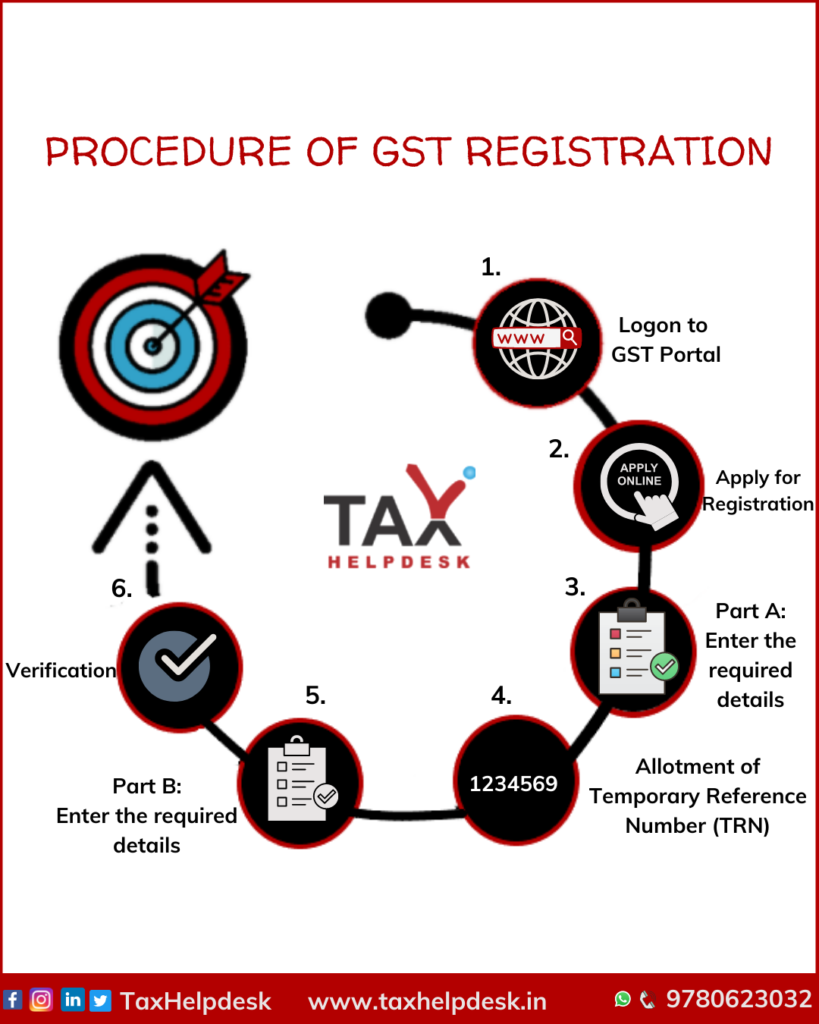Throughout: The Ultimate Roadmap to GST Registration for Services Looking For Financial Stability
Navigating the intricacies of Item and Solutions Tax (GST) registration is a crucial action for services making every effort for financial security. Breaking down the roadmap right into workable steps can streamline the enrollment trip for companies looking to boost their financial standing.
Understanding GST Basics
Delving into the basic principles of Item and Solutions Tax (GST) is crucial for getting an extensive understanding of its ramifications on organizations and the economy. GST is a value-added tax levied on most items and solutions for domestic usage. It has replaced several indirect tax obligations that existed in the pre-GST age, enhancing the tax framework and improving simplicity of doing service in India. Under the GST system, both goods and services are taxed at a certain price, which is identified based upon their classification. Businesses are called for to sign up for GST if their yearly turnover surpasses the threshold restriction set by the federal government. Input Tax Credit Rating (ITC) is a considerable feature of GST, permitting businesses to declare credit for tax obligations paid on inputs, lowering the general tax obligation problem. Recognizing the fundamentals of GST is crucial for services to follow tax laws, manage their financial resources efficiently, and add to the country's economic development by joining a transparent tax system.
Qualification Requirements for Registration
As of the current laws, the threshold limit for GST enrollment is a yearly aggregate turn over of 40 lakhs for businesses running within a state, other than for special group states where the limit is 20 lakhs. In addition, certain organizations are needed to sign up for GST irrespective of their turnover, such as interstate distributors, casual taxed individuals, and companies accountable to pay tax under the reverse cost mechanism. It is important for businesses to thoroughly analyze their turnover and deal types to identify their GST enrollment responsibilities precisely.
Papers Needed for Enrollment
Having met the eligibility requirements for GST enrollment, organizations should now guarantee they have the requisite papers in position to continue with the registration procedure successfully. The records needed for GST enrollment usually include evidence of business constitution, such as partnership deed, registration certificate, or incorporation certificate for different sorts of companies. Furthermore, businesses require to provide documents establishing the principal workplace, such as a rental agreement or electrical energy costs. Frying pan card of business, along with the identification and address evidence of promoters/partners/directors, are necessary for verification functions. Bank account statements, together with terminated cheques or a copy of the bank passbook, are required to confirm the economic details offered during enrollment. Organizations need to have electronic signatures ready for the accredited notary. Guaranteeing all these documents are arranged and easily available will certainly accelerate the GST registration process, enabling companies to conform with tax guidelines flawlessly.
Step-by-Step Registration Refine
Commencing the GST registration procedure involves a collection of structured steps to ensure a certified and seamless registration for companies. The very first step is to see the GST website and complete the enrollment form with accurate information of the organization entity. Following this, the applicant receives a Short-lived Recommendation Number (TRN) which is made use of to return to the application process if it's not finished in one go.
Following, all needed documents according to the checklist supplied by the GST portal requirement to be published. These files typically consist of proof of company enrollment, address and identification evidence of marketers, monetary statements, and organization entity's PAN card.

Post-Registration Compliance Guidelines

Conclusion
Finally, businesses seeking economic security needs to understand the essentials of GST, meet qualification requirements, collect necessary documents, adhere to the detailed registration process, and follow post-registration standards - Best GST registration services in Singapore. By adhering to these steps, organizations can make sure conformity with tax laws and maintain economic stability over time
In addition, certain businesses are needed to register for GST irrespective of their turn over, such as interstate distributors, laid-back taxable persons, and businesses responsible to pay tax under the reverse fee mechanism.Having satisfied the qualification criteria for GST enrollment, site businesses have to currently ensure they have the requisite records in location to proceed with the enrollment process effectively. The records required for GST registration typically include evidence of business constitution, such as partnership action, enrollment certification, or consolidation certification for different kinds of services. In addition, businesses need to supply records developing the primary area of service, such as a rental contract or electricity costs.Beginning the additional resources GST registration process includes a series of organized actions to make sure a seamless and certified enrollment for companies.